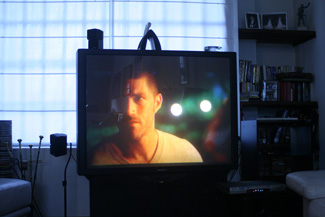
A deep look into drama series
This doctoral thesis analyses the mediological characteristics of five north American drama series, describes their structure and explains the impact of their content on spanish public.
This doctoral thesis (The Audiovisual Text: Analysis from a Mediological perspective) starts from the empirical analysis of five drama series: The West Wing, NBC: 1999-2006; Lost, ABC: 2004-; Desperate Housewives, ABC: 2004-; House, M.D., Fox: 2004- and CSI: Crime Scene Investigation, CBS: 2000-.
They have been analysed with respect to the production context (the programme’s audiences, social repercussion, awards, strategies of interactivity) as well as to generic features, invariant motives and the use of thematic and mythical recurrences. The theoretical framework consists of defining both the audiovisual serial text and thematic recurrence and of a comprehensive assessment of the various theories related to the research (Television Studies, formalism, structuralism, deconstruccionism, poststructuralism and mediology).
The methodology chosen derives from a syncretic selection of bibliographic references (Lévi-Strauss, 1969; Dumézil, 1970; Ginzburg, 1989; Nagy, 2006). The essential purpose is to inscribe each of the series within its own genre (diachronic perspective), as well as the presence and usage of myth through thematic recurrence (synchronic perspective). The main hypothesis is that thematic recurrence is present in quality television series, in addition to the characteristics inherent in industrial television production. The differences between generic recurrence and thematic recurrence are established, as is the generic crisis, as precedent to the generic hybridization that characterizes these series.
Taking intertextuality in western cultural production as a staring point, the thesis also analyses US serial audiovisual production, as well as the televisual context of such series (US, production and reception; Spanish, issues related to reception) and the processes of interactivity that are produced in the era of drama, as well as the influence of the various televisual eras within the series analyzed: paleoTV, neoTV, metaTV, postmodernism.
The research concludes that the analyzed series belong to metatelevisual era, characterized by generic hybridisation, fragmentariness and autoreferenciality; these features are related to the maturity of televisual text, with the consequent need to propose a theory of TV and to edit televisual texts.
A change has been produced in the collective imaginary, since the intertextuality of these series comes from traditional thematic recurrences (literary, thematic, mythic) to which metatelevisual and autoreferencial reference must be added. As this research is developed (see annex), these references can be structured as a TV schedule, thus embracing the other TV programmes.
References
"El text audiovisual: Anàlisi des d'una perspectiva mediològica". Doctoral thesis read by Anna Tous and directed by Rosario Lacalle Zalduendo, in the Facultat de Ciències de la Comunicació of Universitat Autònoma de Barcelona.

